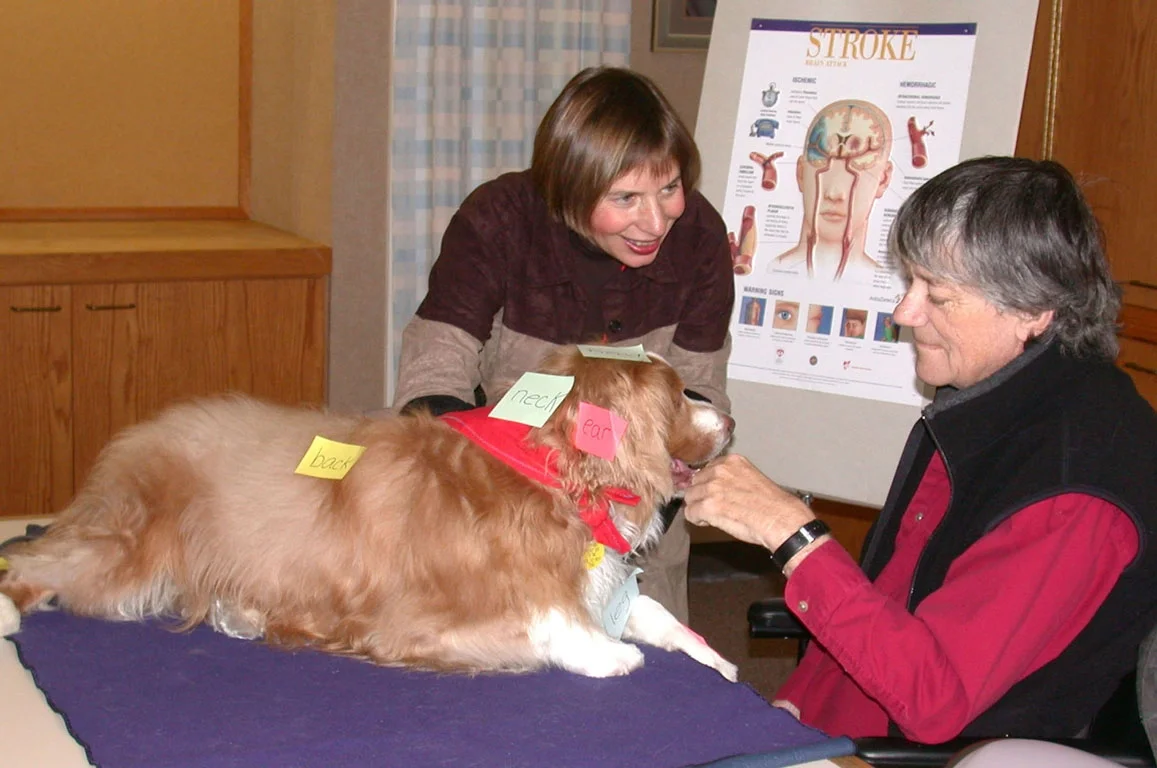What are the Effects of Stroke?
A stroke occurs when the blood supply to the brain has been disrupted. The resulting damage and specific effects are determined by the area of the brain that has been effected, as well as the amount of damage that has occurred. The brain contains a right hemisphere and a left hemisphere along with the area that connects the two. When the blood supply to the brain is disrupted, brain cells die, and depending on where this damage in the brain occurs, very different impairments will result. For additional information on stroke resources and support go to the resource page.
Language is one area that can be significantly changed as a result of a stroke. Depending on the area of the brain that has been damaged, expressive language and/or comprehension of language can occur. This type of language impairment is known as Aphasia.
Speech is a motor movement activity. If the stroke has damaged the specific area of the brain responsible for motor movement and motor planning, the way somebody produces their sounds can be effected. Dysarthria is a motor speech disorder that results in weakness, slowness and poor coordination. Apraxia is another motor speech disorder that results in difficulty planning the motor movements required in speech.
Swallowing is a fine motor activity that requires coordination and strength of specific muscles. When the muscles responsible for swallowing have been effected by stroke a condition known as Dysphagia can occur. Dysphagia can be very serious and may threaten an individual’s ability to eat and drink safely.
Stroke Rehabilitation
Speech and language therapy can be extremely helpful for those who have suffered a stroke. With all of my clients I use a strength-based approach, which utilizes the current skills a person has, in addition to expanding on new skills. Improving communication can be achieved through many different methods, which may be retraining previous skills, or using additional technologies to help support the unique communication needs of each person.
Swallowing therapy may also be a necessary consideration in stroke rehabilitation. As part of my initial assessment procedure, I will ensure that my client is not put at health risk when they are eating and drinking. If swallowing is identified as a concern, I will take the necessary steps with my client and their family, to ensure that health and safety are priorities. Please refer to the swallowing resource page for additional information.
Education and training to family members is a key component in the success of my therapy programs.
Family Support and Emotional Needs
A change in our ability to function is an extremely emotional situation. Family members and close friends are usually the ones left to help support our loved ones back to the best quality of life possible. I believe that success in improving the physical and functional skills of each of my clients, should also be balanced with meeting their emotional needs. Given the important role that many family members play in supporting their loved ones, it is critical that family members take care of their emotional needs as well.
Grief, loss, anger and sadness can be just some of the emotional pain that individuals having suffered a stroke can feel. The family members caring for their loved ones go through similar strong emotions. Please refer to my counselling services if you feel this type of support is necessary to improve you or your loved ones potential for achieving better health and happiness.

